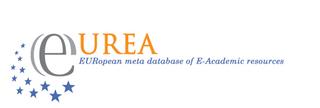
Somehow,
Stephen Downes seems to have a nack of reporting on matters that are very actual for my work, at just the right time. Two weeks ago, he wrote a comment on the
economy of E-learning, at the time that we are producing a final version of the business model for our
EUREA project.
The aim of the EUREA project is to produce a feasibility report on a content sharing platform between members of the European university network
LERU, the League of European Research-intensive Universities. The idea of the project is to share high-quality learning materials through the development of a meta-database.
At the start, the EUREA business plan envisaged a potential commercial exploitation of the learning materials, especially for institutions and companies outside the consortium, but now the business plan suggests a free offering of learning materials, and a commercial offering of added services, such as coaching, supervision or creditation. The main idea is that no institution is willing to pay for learning content.
Downes' analysis supports the new approach of the EUREA business plan, and offers 'academic' support from a very influential expert in e-learning. Now we may be able to convince the European Commission that our approach is not as silly as they - liberal as they are - might think.
Our report on the EUREA business model should be available at the end of next week, at
AVNetWiki.
 The dissertation also resulted in a book "Digitale didactiek", co-authored with Jan Schuer and published by De Boeck (ISBN 9045514052).
The dissertation also resulted in a book "Digitale didactiek", co-authored with Jan Schuer and published by De Boeck (ISBN 9045514052).

